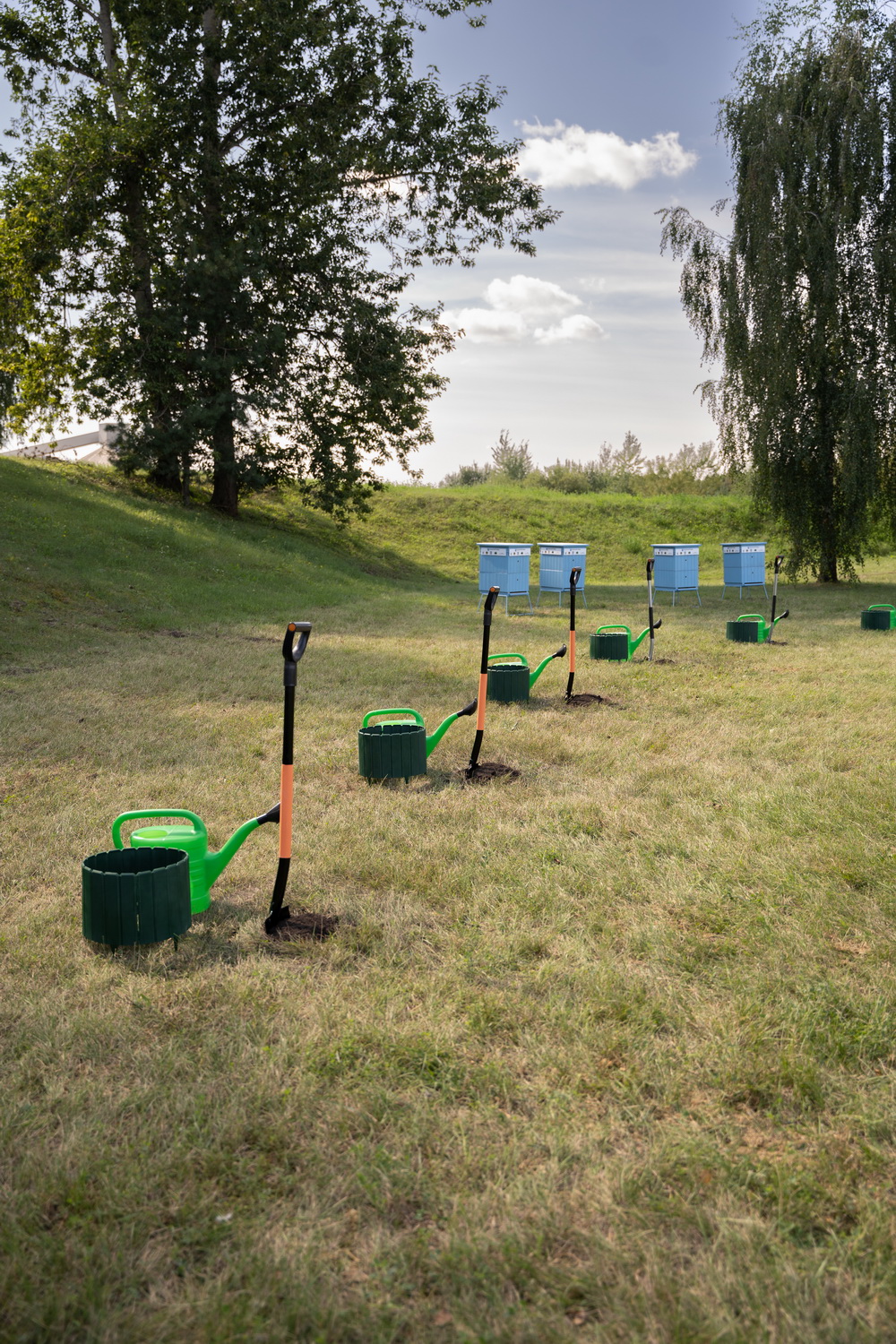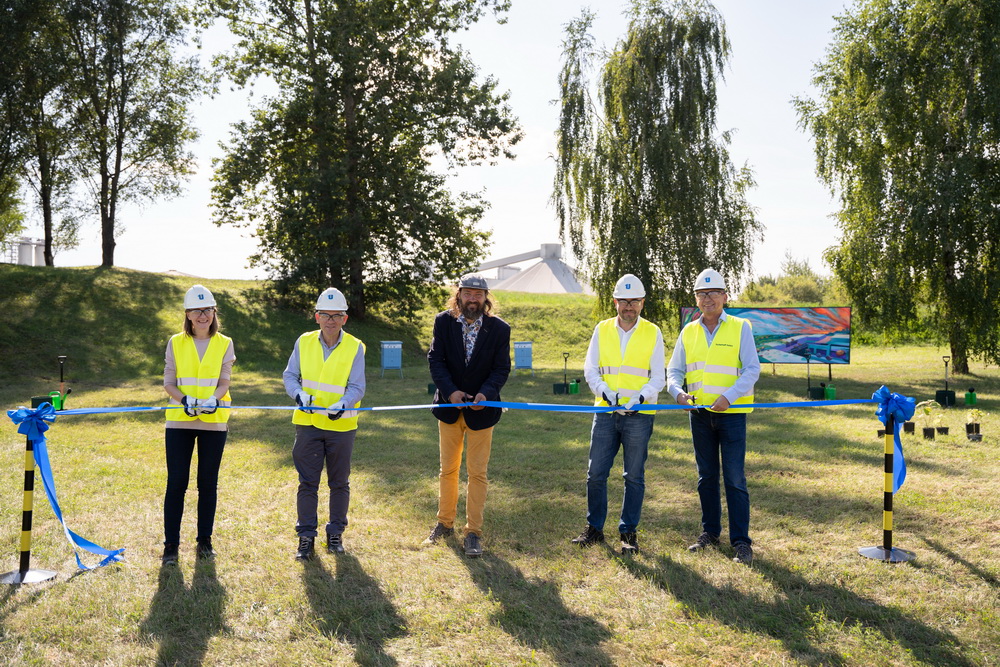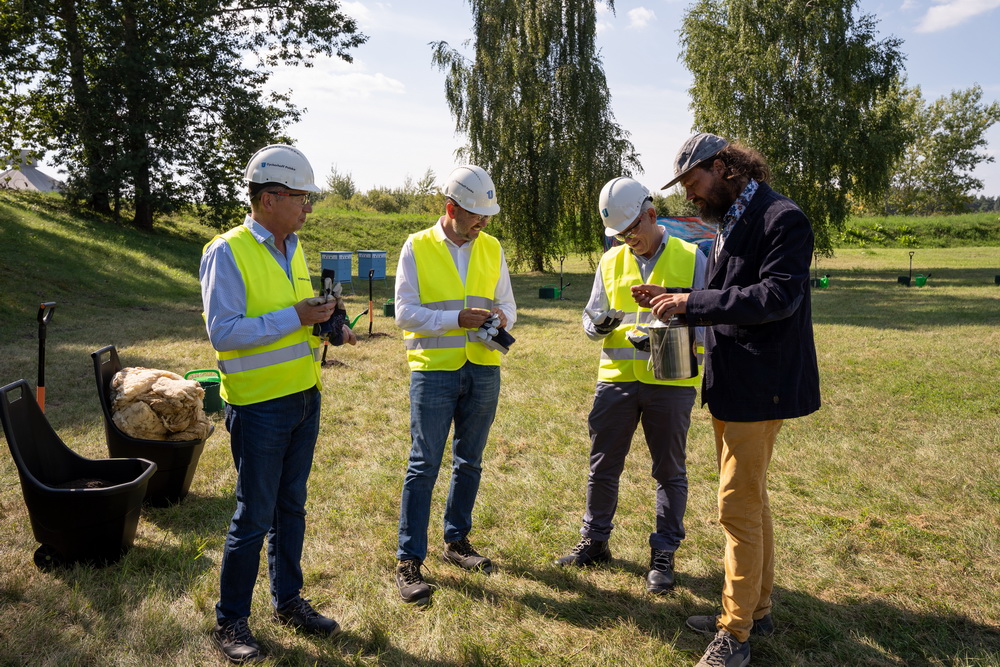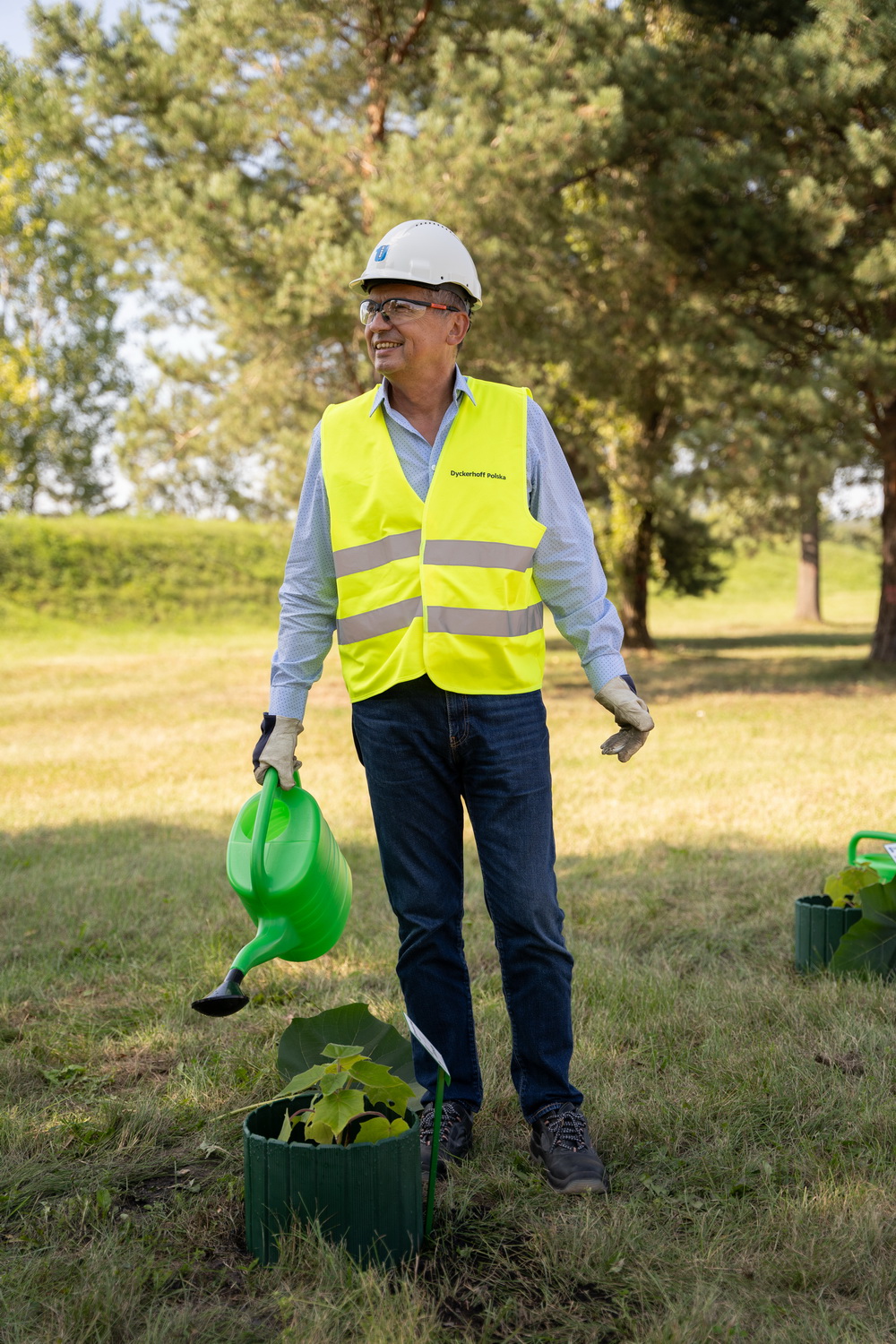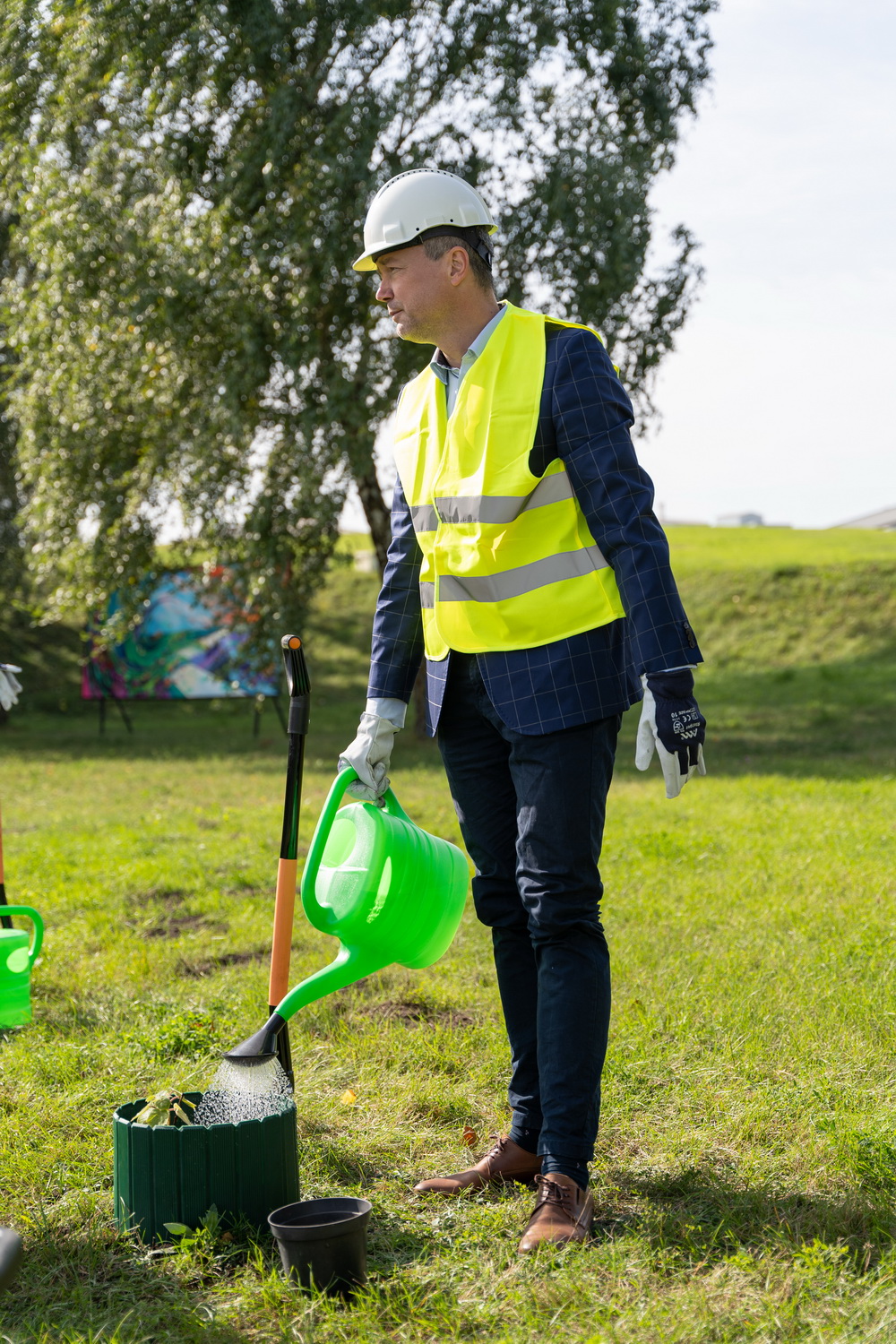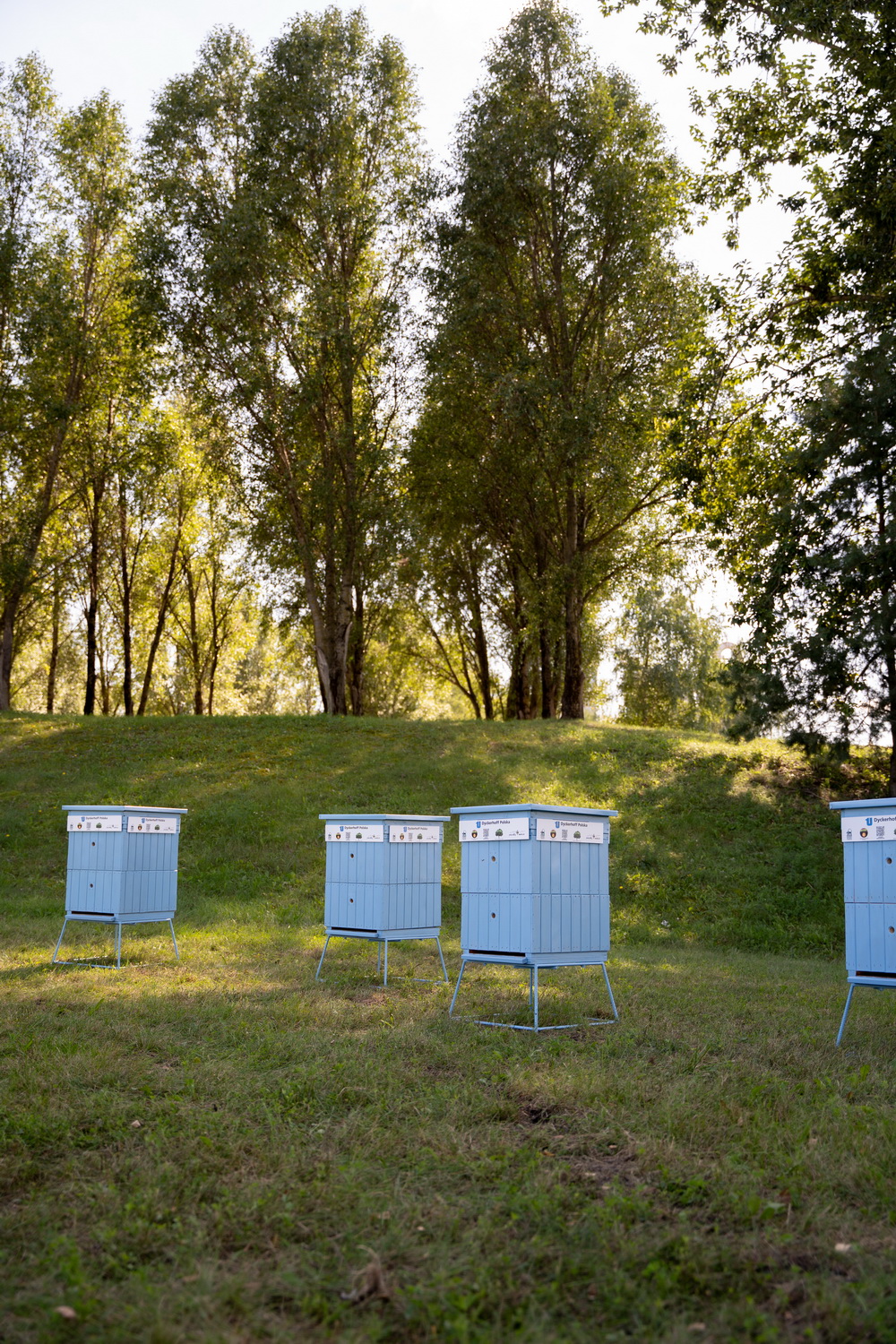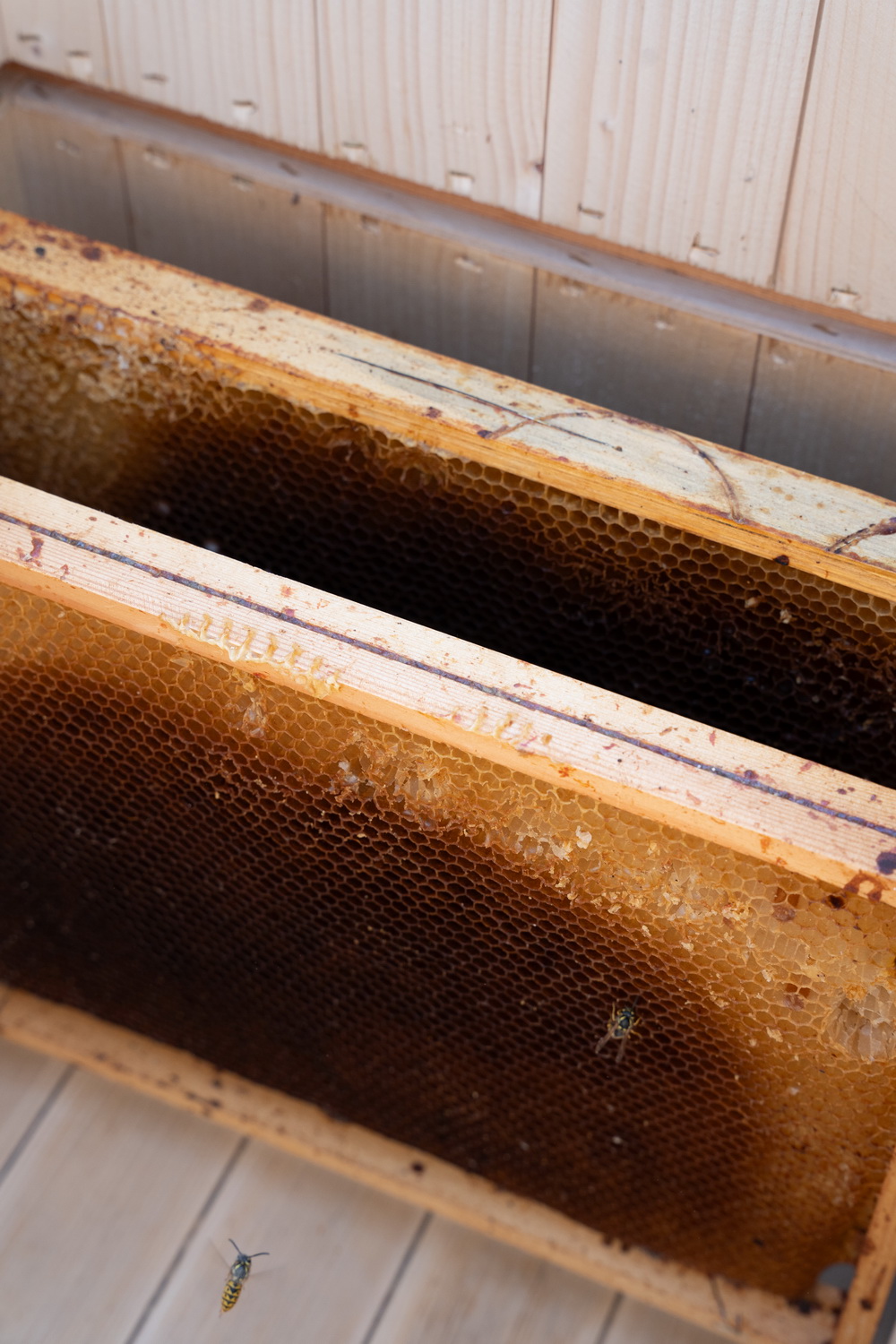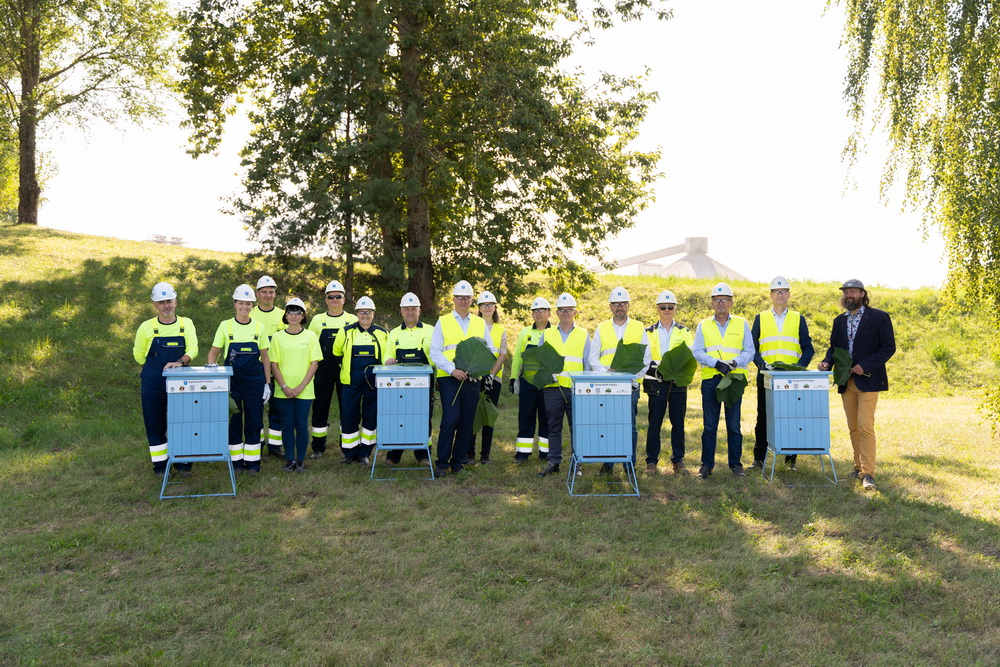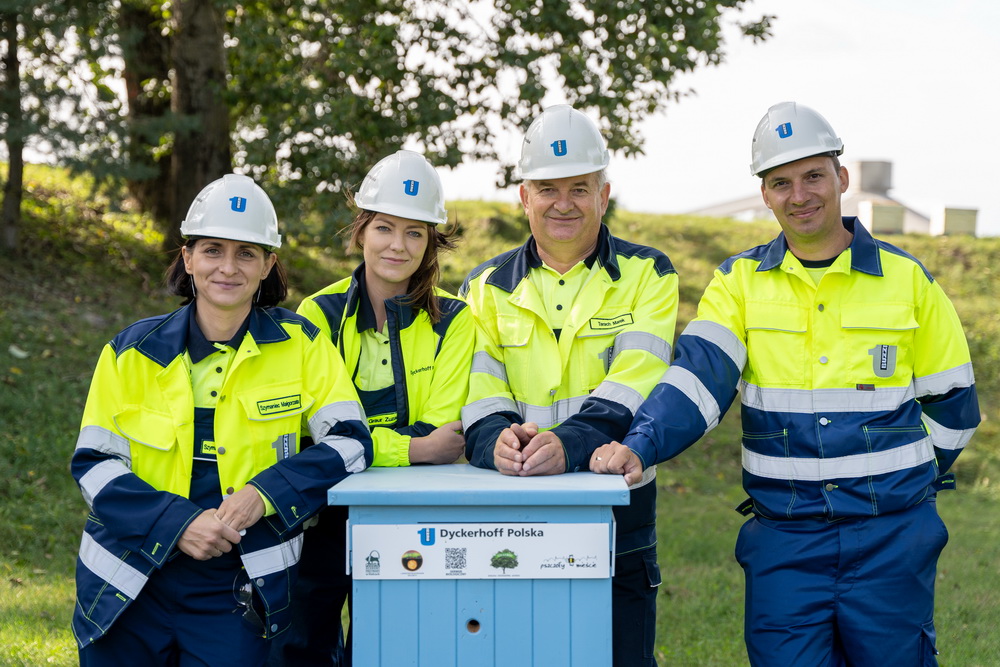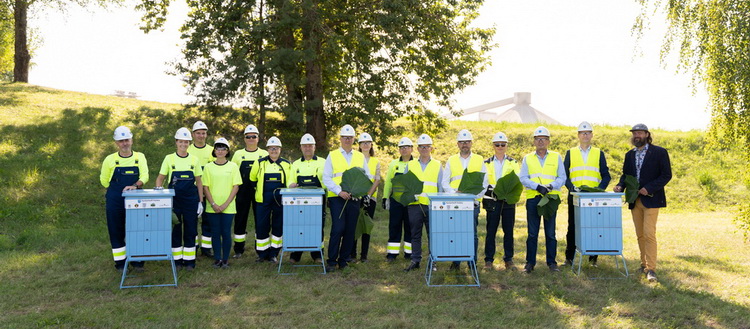
Apiary and oxygen trees in Nowiny cement plant
In last months, Dyckerhoff Polska Sp. z o. o. in cooperation with the “Nature Conservation League” from Kielce, has implemented two very interesting pro-ecological projects.
The first one is related to the global reduction of CO2 from the atmosphere and involved establishing an oxygen farm according to the principle "Plant oxygen, reduce your carbon footprint". The carbon footprint is the cost of our stay on Earth. Climate change caused by anthropogenic factors, i.e. those resulting from human activity, is one of the most important problems of our planet. Dyckerhoff Polska, as an industry representative, undertakes many initiatives aimed at reducing CO₂ emissions. One of them are “Oxytree” trees, also known as oxygen trees, which are extremely effective in producing oxygen. To meet these activities, over 250 Oxytrees Paulownia fortunei (Seem.) Hemsl. x Paulownia tomentosa (Thunb.) Steud were planted on the premises of the Cement Plant in Nowiny.
It is a tree species created as a result of genetic modification of woody plants of the Paulownia genus naturally occurring in warmer regions of Asia, mainly in China, Laos and Vietnam. These are fast-growing trees in which, with age, there is a dynamic increase in the capture of CO2 from the atmosphere (multiplication of photosynthetic processes in the growing leaf apparatus), which significantly contributes to improving air quality. The large leaves of these trees absorb huge amounts of carbon dioxide and produce several times more oxygen than traditional trees. According to research, one Oxytree can produce about 260-300 kg of oxygen per year. This is much more than most native tree species, which typically produce 100 to 150 kg of oxygen per year. One hectare of aerobic tree plantations reduces approximately 111 tons of CO2. Thanks to oxygen trees, we reduce our carbon footprint, support our planet and breathe fresh air.
Additionally, to improve the needs of the local community, oxygen trees were planted along the raw material road used to transport raw material from the Kowala quarry to the cement plant. Oxygen trees, in addition to their CO2 reducing properties, will serve as a natural sound-absorbing barrier.
The planting of oxygen trees took place in several stages with the participation of the Management Board of Dyckerhoff Polska Sp. z o. o. and representatives of the Buzzi Group from Italy and Germany. The Mayor of the Nowiny Commune, Mr. Sebastian Nowaczkiewicz, also planted his oxygen tree in our plant.
The second pro-ecological project was carried out as part of the "Bees in the city" campaign supported by the “Nature Conservation League”. Urban bees are an idea for developing and promoting urban beekeeping in our region. Due to the problem of the decline in the population of honey bees in Poland and Europe, a bee apiary consisting of 4 hives was established in the Cement Plant, near the oxygen trees. This action will support the growth of the population of this insect species by creating a friendly environment for its existence and development. We will protect bees by giving them a new home in the cement factory, thus contributing to the development of this extremely useful species of insects.
In the coming years, further plantations of oxygen trees and other pro-ecological investments are planned, including: planting flower meadows. Our task is to achieve harmony in the implementation of economic, social and environmental goals. We treat sustainable development as our social obligation, as well as a factor in the company's long-term success.



